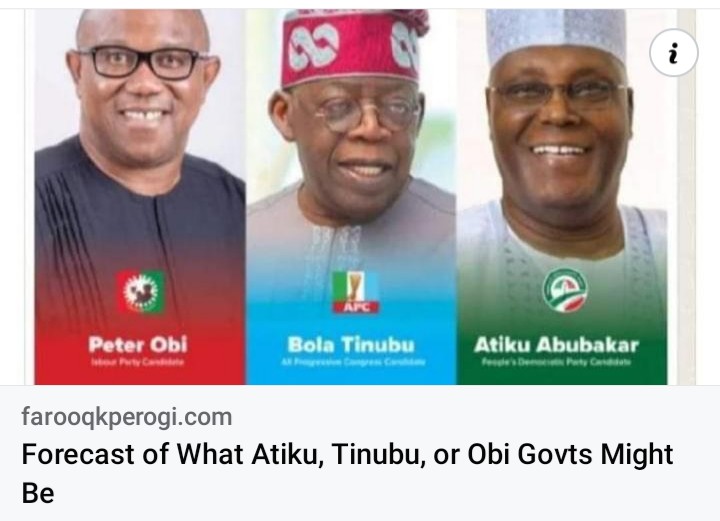By Farouq Kperogi
the South is that a southerner (and, for some, a Christian) should succeed Muhammadu Buhari. And that’s not an unreasonable sentiment in the light of the power of symbolic representation in a complex, multi-ethnic, and multi-religious country like Nigeria.
Atiku’s election after Buhari would be made worse by the fact that they both share the same ethnicity. Although Buhari doesn’t speak Fulfulde (the language of the Fulani), is culturally and linguistically Hausa, and can only imagine what it means to be culturally Fulani, he nonetheless self-identifies as Fulani and is phenotypically Fulani. Atiku is culturally and linguistically Fulani. And they are both Muslims.

The sense of righteous indignation that the emergence of Atiku as president would provoke in the South might convulse the foundations of Nigeria. It would also deepen the alienation of the Igbo and probably push Biafra agitation to the mainstream in the Southeast.
The Southwest might also partake in calling attention to “northern domination” and recoil to its “Yoruba Nation” shell, which would embolden other subnationalist fissiparities. This would be ironic because, with all his faults, Atiku is probably the most cosmopolitan politician to ever emerge from northern Nigeria. But the likely revolt of the South against his presidency won’t be against him as a person but against the idea of one northern Muslim succeeding another northern Muslim.
A Bola Tinubu presidency would be hamstrung by multiple burdens. The first is a moral one. His U.S. drug forfeiture in the 1990s, which is now more public knowledge than it has ever been, would perpetually undermine his moral authority as a president. He is also clearly physically and mentally unwell and would have a surrogate presidency that would be worse than Buhari’s.
But it would be a factious surrogate presidency. Remi Tinubu, his wife, would head one faction. Seyi Tinubu (whom I learned isn’t the son of Remi) would head another. In other words, it would be another Buhari presidency, except that it would be on steroids. It would become clear that the fears about a Muslim-Muslim presidency were groundless since both Remi and Seyi are Christians.
I also foresee an open confrontation between Kashim Shettima and Tinubu’s inner circle, and the confrontation would assume a regional coloration. Shettima is a studious, strong-willed, and self-assured personality who would revolt against his exclusion—unlike Osinbajo. It won’t take long for the North to sour on Tinubu and for regional animosities to ensue.
Of course, a Tinubu win, like an Atiku win, would most likely add fuel to the flames of Biafra agitation and mainstream it. It isn’t just because people in the Southeast rightly feel that this is the time for a president from their region but also because Tinubu doesn’t seem to show any warmth toward them. His election, like Atiku’s, would exacerbate the sensation of alienation in the Southeast.
What is obvious to me is that whoever emerges president in 2023 would have a more difficult country to govern than any president since at least 1999. That means the formation of a government of national unity, which some people already advocate, is inevitable.
But a government of national unity is merely elite appeasement. To have a chance to succeed even minimally, the next government has to be more attuned to the pulse of the people in more ways than any government we have had in recent time.






